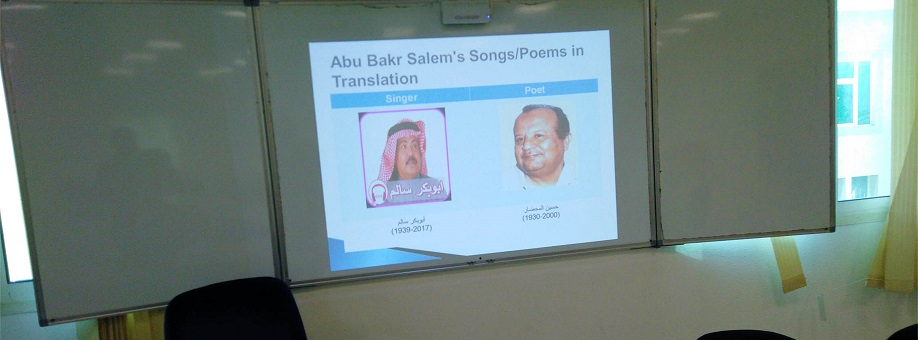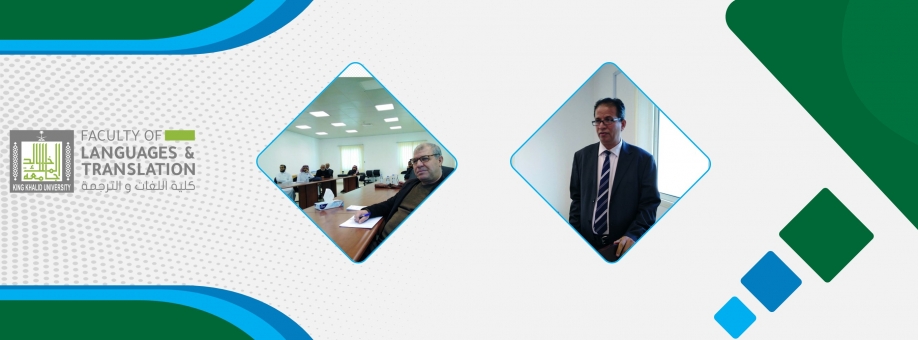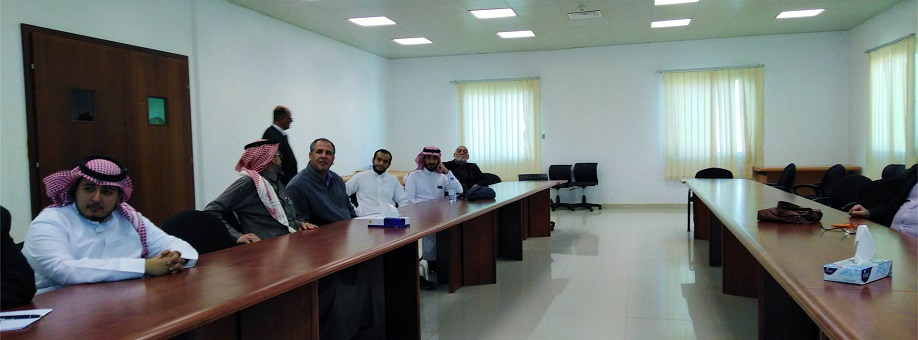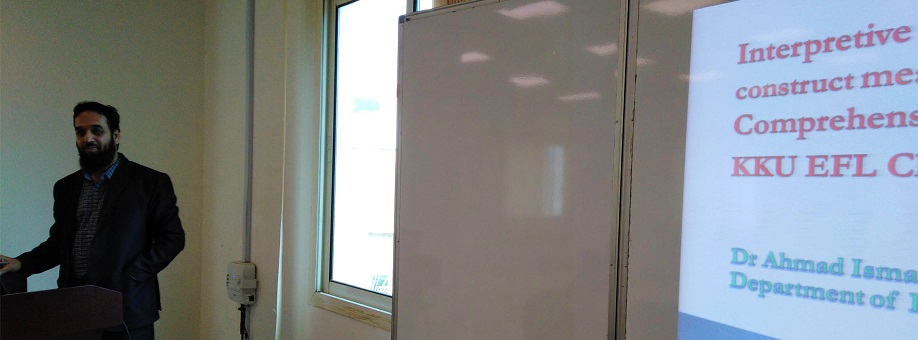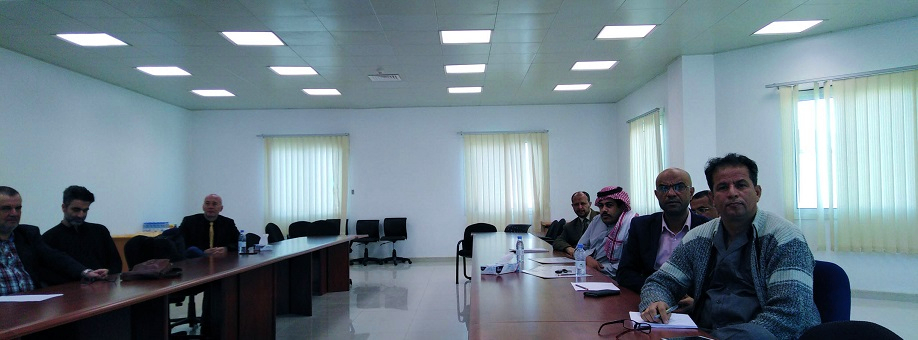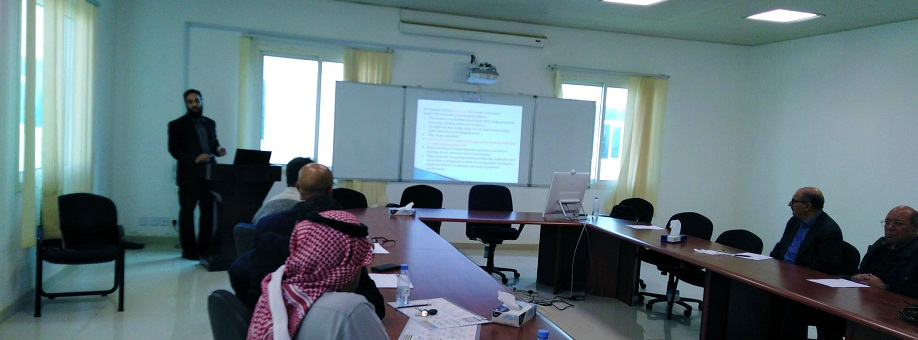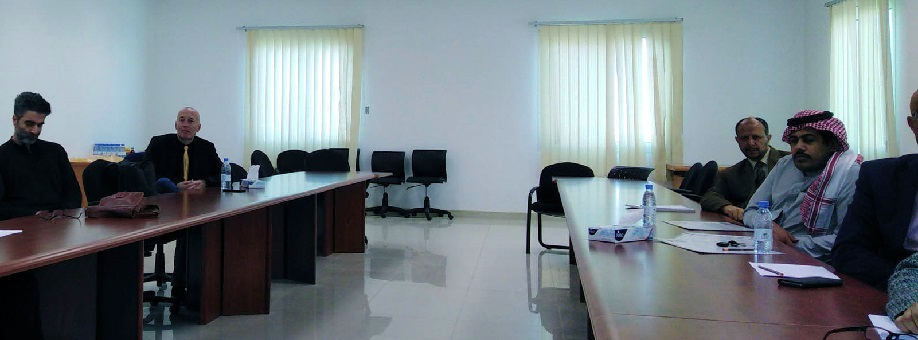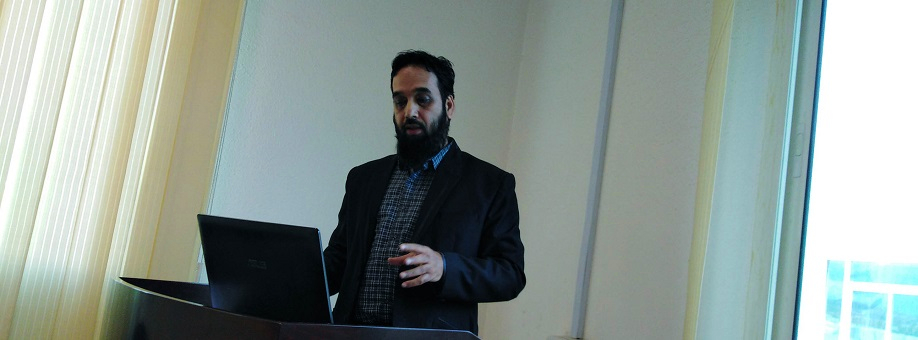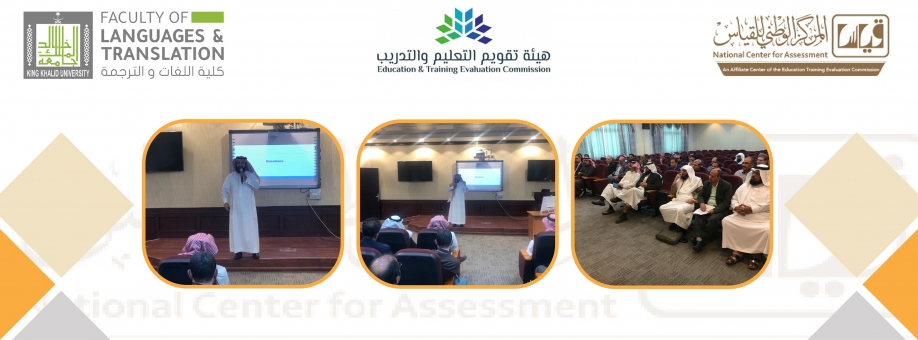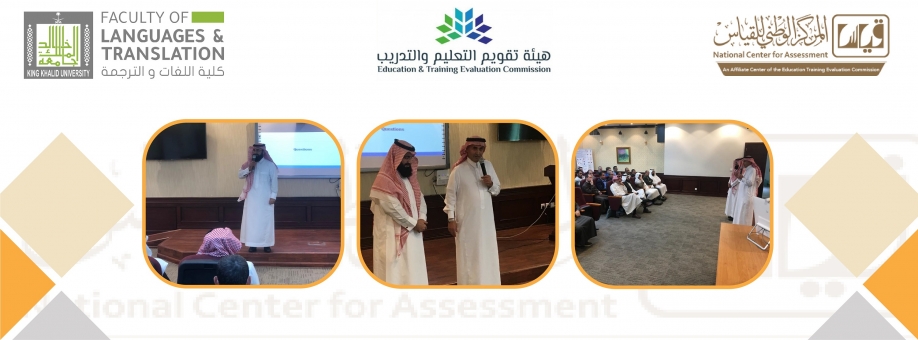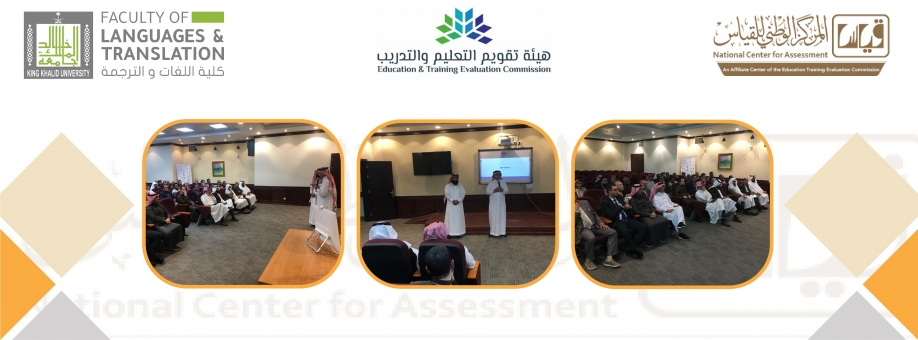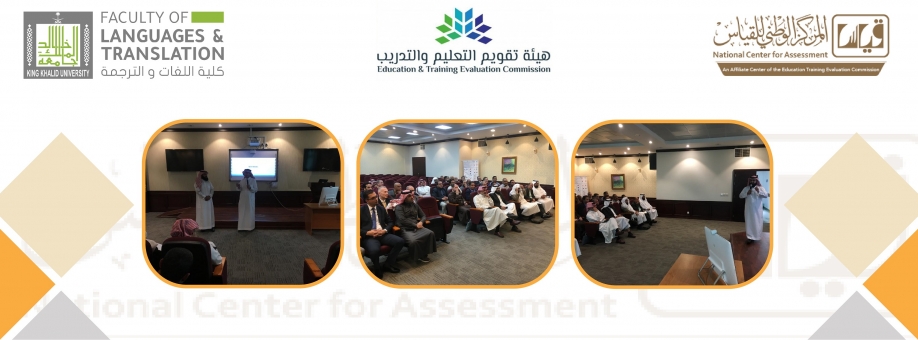Vice Rector of Academic Development and Quality, Dr. Merzin Al-Shahrani, sponsored a learning session entitled "Improving the Outcomes of the Bachelor of Arts in English Program at King Khalid University in the National Center for Assessment (QIYAS)" on Monday, November 18, 2019. The event was co-sponsored by the Deanship of Academic Development and Quality, and hosted by the Faculty of Languages & Translation's senior leadership. In attendance were nearly all faculty members at the main campus and the King Abdullah Road campus via teleconference.
Vice Rector Al-Shahrani began the event by explaining how the Ministry of Education has endeavored to improve the quality of program outcomes in all Saudi universities. Furthermore, he mentioned that educational outcomes are a key focus area of His Excellency, Minister of Education Dr. Hamad Al-Shaikh. The Vice Rector also noted that while institutional accreditation and university ranking are important, outcomes are paramount. The National Center for Assessment has refocused learning outcomes (LOs) under a similar model to the Bologna Process in Europe, which places all emphasis on LOs. By drawing from the Bologna Process key domain areas: Cognitive achievement (essential knowledge), behavior (skills and abilities) and affectivity (attitudes, values or beliefs), LOs will be greatly enhanced. Vice Rector Al-Shahrani then covered the main components and sub-components of the LOs that should be integral to our undergraduate program. The national standardized examination for English teachers reflects these LOs. Alumni performance on this exam is extremely important for career opportunities with the Ministry of Education. The test score parameters are:
Linguistics (15%);
Applied Linguistics (12%);
Translation (9%);
Literature (20%);
Language Skills (42%);
Research Methods (2%).
Vice Rector Al-Shahrani then turned to the audience and reiterated the importance of adhering to the main components of the LOs. He stressed that our students deserve better learning outcomes that lead to enhanced employment opportunities. He then went through graphs and charts on how the 677 FLT graduates performed on the exam in the year 1440. Although the results were not as favorable as expected, there are promising indicators for potential improvement.
The Vice Rector presented a 'road map' based on teacher actions to improve test scores. Shortly thereafter, a detailed question and answer session began in which Dean Abdullah Al-Melhi expressed his concern for the results and his optimism in the plan for improvement. Vice Dean for Academic Affairs, Dr. Yahya Asiri, and Vice Dean for Academic Development and Quality, Dr. Abdulrahman Almosa, stated that they are also confident in the Bacehlor of Arts in English program's ability to resolve the issue, noting that sub-committees are already being formed to address each deficiency in the program.
There were many tough questions during the Q&A session. For example, the existing basis for the undergraduate program and the required LOs are set forth in the Saudi Arabia Qualifications Framework (SAQF). Vice Rector Al-Shahrani concurred, but he stated that both sets of requirements apply to the undergraduate program. The Vice Rector said that our curriculum must be modified to reflect the current requirements set forth by His Excellency, Minister of Education Dr. Hamad Al-Shaikh. The King Abdullah Road Campus participants made mention of the significant obstacles to overcome in making these changes.
The Bachelor of Arts in English program (BAEP) at the Faculty of Languages and Translation (FLT) is dedicated to providing excellence in all aspects of its education. BAEP, the FLT, its students, and alumni deserve national recognition for the quality of the degree program. The department is determined to reform its curriculum to ensure optimal learning outcomes and better results on standardized national exams.
Date: 11/19/2019
Source: Faculty of Languages & Translation

